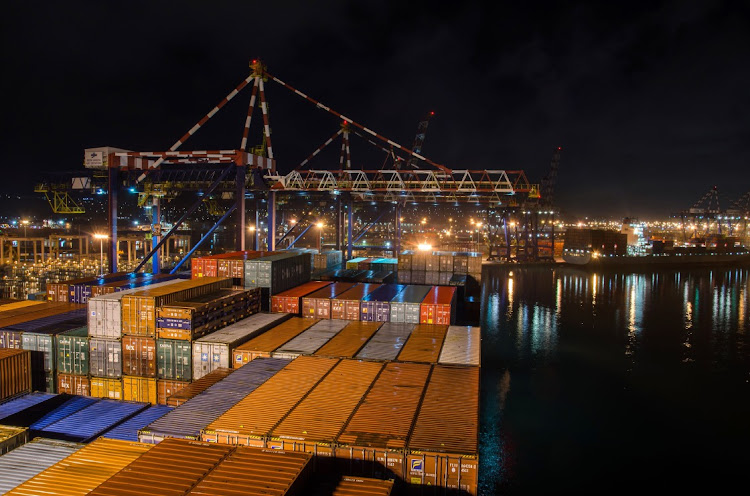Regaining investor confidence requires a narrative change

We cannot wish away the importance of foreign direct investment from the US and Europe because for now there's no alternative
The past two weeks have been extraordinary for financial markets, the rand exchange rate in particular. It weakened, at one point, to R19.50 against the US dollar. What is apparent is that mostly domestic issues are at play, given we did not see the same sell-off in other emerging markets.
It has been difficult to talk about South African investment prospects with US investors this week as they have many questions whose answers don’t seem to come quickly from policymakers.
One investor put it this way: when narratives compete with reality, narratives always win at first and reality will catch up later. Unfortunately, the winning narrative now is costly for the economy in ways that will only be clear in the months ahead. Let me explain.
Rand Merchant Bank opened a New York office this week to link US investors to African investment opportunities. More than 80 investors showed up at the South African consulate in New York for the launch. Deputy finance minister David Masondo was the keynote speaker.
I was nervous given the diplomatic fallout between Pretoria and Washington in the past two weeks. His speech covered a range of issues, starting with the importance of collaboration between government and business in solving the country’s burning issues. That this launch was hosted at the South African consulate and that a high-ranking government official crossed the Atlantic to deliver a speech was testament to such collaboration.
“The idea of an African currency, for example, is not new and near impossible to implement. So is the idea of a Brics currency as an alternative to the US dollar”
Masondo spoke about opportunities in Africa, South Africa in particular. He outlined economic reforms that are underway in the energy, water, transport and logistics sectors. Normally, and in ordinary conversations, these constrain the country's economy. They are problems that need to be solved and represent opportunities for investors. After all, great innovation and successful businesses come to life because they solve the biggest problems society faces.
He also spoke about the US-South Africa relationship being one of the most important sources of investment into this country’s economy. Whatever the global sentiment against the US hegemony is, we cannot wish away the importance of foreign direct investment that comes from there and Europe.
It is true global trade is shifting and globalisation is eroding with countries friend-shoring — shifting the source of important inputs into manufacturing production or final products to countries that are genial towards them.
Let me digress to address related issues. It is also true that US and European sanctions against Russia have driven conversations, mainly among emerging markets, about insulating themselves against similar risks to their economies and therefore calls about alternative currencies to the US dollar in which to trade. This might happen in decades to come, but in the short to medium term it is wishful thinking.
The idea of an African currency, for example, is not new and near impossible to implement. So is the idea of a Brics currency as an alternative to the US dollar.
There are basic requirements for a successful common currency union that need to be fulfilled. There must be a political union that decides on broad objectives and makes common decisions. The euro area has one. The Southern African Customs Union also has one, as does the East African common monetary union.
There must also be synchronisation of the business cycle among countries that want to be in such a union. There must be open and free trade and movement of people. The euro region has these characteristics. Common monetary unions do not.
There must also be a fiscal union, which even the euro area does not have. This is among reasons there were discussions about the potential collapse of the euro nearly a decade ago and it will remain an outstanding issue for its survival.
Africa and Brics need to fulfil many requirements for a successful common currency that may be an alternative to the US dollar. In simple terms, an alternative currency is wishful thinking for now, though there will be an increase in bilateral trade that happens outside the US dollar.
Let me return to Masondo and US investors. At the end of his speech he addressed the elephant in the room, the diplomatic fallout between Washington and Pretoria. He was clear on the importance of quickly resolving the matter by bringing forward all evidence of allegations of the sale of arms by South Africa to Russia and reiterated government’s position of non-alignment.
Post his speech, conversations with clients were more about fundamentals. How and when will load-shedding be resolved and its impact on fiscal policy. What the rand's weakness means for monetary policy decisions next week and beyond. If the government will open up the transport and logistics sector, particularly rail and ports, to the private sector. If anything is being done to resolve the skills constraint. If the government is serious about tackling corruption.
What was heavy for me was an observation from one investor who said the path this country is on has been seen in other emerging markets. We have always had confidence that South Africa is a resilient nation and it has proven so since 1994. But at this moment we doubt if the resilience will carry it beyond current difficulties. The risk-reward rationale no longer justifies bearing the former regarding investment in a country without a positive catalyst.
The narrative is negative despite the realities of economic reforms and it comes at a significant cost to the economy. Money talks and money walks, and policymakers must do all they can to quickly change the narrative to bring back investor confidence.
